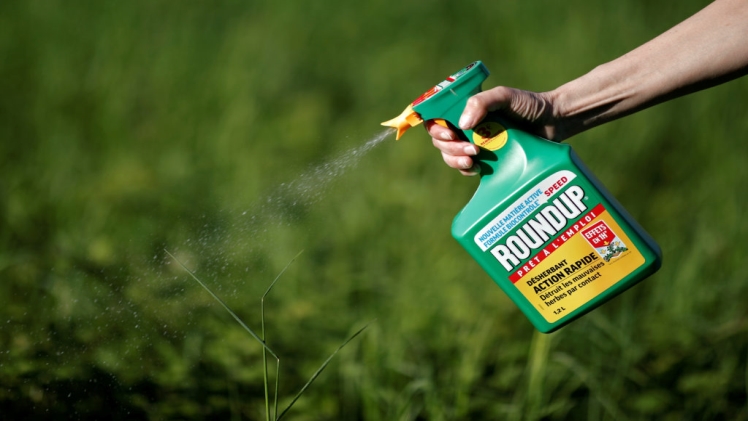Lawn and garden maintenance can be tough work, and people are always looking for an easier way to navigate time-consuming, complex tasks. When the alternative to purchasing a $13 bottle at the supermarket seems to be spending all afternoon hand-picking weeds out of the flowerbed, buying a popular herbicide seems like a no-brainer, especially with their ubiquity, as herbicides have been used in suburbs, schools, and industrial agriculture since the ‘70s.
Unfortunately, the science seems to suggest that herbicides cause more harm on average than good, especially herbicides that use ingredients like glyphosate or 2,4-D. In fact, scientists are beginning to find that chronic exposure to herbicides like Roundup that use either of these ingredients can lead to significant health complications, as well as possible negative consequences for the environment. The lawsuits are piling up, and with clients winning cases against manufacturers like Monsanto, it seems as though these claims may have some merit.
It’s tempting to take the convenient way out, but it may not be best for your lawn’s health or even your own. Here are a few reasons you should think twice before using herbicides with glyphosate or 2,4-D.
The Usual Suspects: Glyphosate and 2,4-D
The very things that make these two ingredients so effective are what can make them extremely dangerous, both to your lawn’s health and your own. Glyphosate interferes with the ability of plants to produce the amino acids and proteins they need to live, inhibiting their growth and killing them in the long term. Unfortunately, glyphosate does not discriminate between the weeds they intended to kill and other plants you’d like to keep breathing, meaning it’s a blanket killer that will decimate your entire lawn if you don’t apply it carefully. 2, 4-D also kills indiscriminately but functions a little differently: instead of inhibiting the growth of plants it’s attacking, it makes the growth of their cells spiral out of control, working as cancer does in the human body.
Both are regarded as potential carcinogens by scientists to the point where Roundup is banned in most European countries, and its use in the US has led to several lawsuits, as mentioned above. While the use of both ingredients is not banned and their connection to cancer has not yet been proven beyond a reasonable doubt, there is a strong correlation between the usage of herbicides with these ingredients and a variety of health issues.
The Ghost of Glyphosates: Haunting Us for Decades to Come
The use of these ingredients can have a significant effect on the environment, as these chemicals tend to leach through deep soil into the groundwater below. Herbicides can also be transmitted into the atmosphere through a process known as volatilization, which can cause them to be spread further than intended as it comes back down through precipitation. While herbicides are typically meant to target plants, wildlife researchers from the National Wildlife Refuge System have noticed that in some cases, herbicides can cause subtle physiological changes in native wildlife, with developmental effects being among them.
How much more reasonable, then, does the claim that we’re being negatively affected by the continuous use of these herbicides seem? With the constant use of these herbicides in a variety of settings since the ‘70s, farmers, custodians, and suburban homeowners have been consistently exposed to the chemical for years on end. The ingredients used in these herbicides have been linked to non-Hodgkins lymphoma, congenital disabilities, leukemia, and other life-altering health conditions. And worst of all, the continued use of these chemicals today and the government’s permissiveness (or apathy) toward them means that we’ll likely be dealing with worsening effects for years to come.
Better Safe than Sorry
In 2021, consumers are more aware of the far-reaching impacts of their purchases than ever before. But for many who still use Roundup and other herbicides with potentially dangerous ingredients, the normalization of these harmful chemicals has left them ignorant of the possible consequences to their health. Consider making your own, safe herbicide with household supplies found in your pantry, or doing research on herbicides that don’t contain harmful chemicals: using Roundup isn’t worth the risk.

